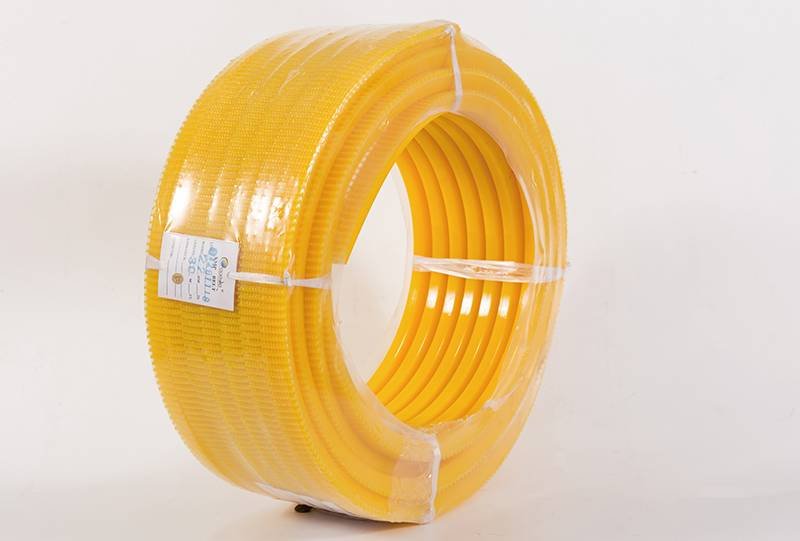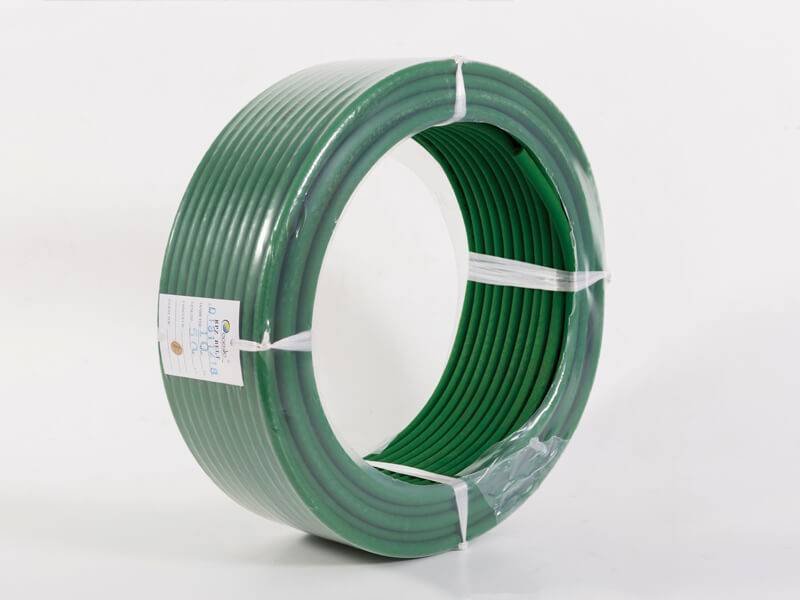The automotive industry is one of the most demanding sectors when it comes to precision, durability, and efficiency. Conveyor systems, assembly lines, and various machinery must perform seamlessly to meet production goals and ensure high-quality vehicle manufacturing. One material that has proven to be indispensable in these processes is TPU (Thermoplastic Polyurethane). TPU belts offer superior performance, durability, and flexibility, making them an essential part of the automotive industry. In this article, we’ll explore the role of TPU belts in automotive manufacturing and how they contribute to enhancing efficiency and quality.
What Are TPU Belts?
TPU belts are made from thermoplastic polyurethane, a versatile material known for its abrasion resistance, flexibility, chemical resistance, and high tensile strength. Unlike traditional materials like rubber or PVC, TPU belts combine the best of both worlds, offering the elasticity and strength of rubber along with the rigidity and toughness of plastic. These attributes make TPU belts ideal for high-performance applications in automotive manufacturing, where efficiency and reliability are paramount.

Advantages of TPU Belts in Automotive Manufacturing
1. High Durability and Wear Resistance
Automotive production lines are fast-paced environments that demand equipment capable of withstanding constant wear and tear. TPU belts excel in this area due to their exceptional durability and abrasion resistance. These belts can endure the intense friction, pressure, and heavy loads associated with automotive assembly lines without deteriorating. This long-lasting performance reduces the frequency of belt replacements, leading to lower maintenance costs and increased operational efficiency.
2. Flexibility for Complex Conveyor Systems
The flexibility of TPU belts is another key factor that makes them valuable in the automotive industry. Automotive assembly lines often feature complex conveyor systems with curves, inclines, and other directional changes. TPU belts are highly flexible, enabling them to navigate these intricate systems without compromising performance. Whether moving large automotive components or small, intricate parts, TPU belts provide the necessary versatility to keep production lines running smoothly and efficiently.
3. High Load-Bearing Capacity
Automotive manufacturing involves the transportation of heavy components, from engine parts to full vehicle chassis. TPU belts offer a high load-bearing capacity, allowing them to carry heavy items without stretching or breaking. This is particularly important for automated assembly lines, where large parts must be moved across multiple stages of production. The superior tensile strength of TPU belts ensures that they can handle the demands of heavy-duty material handling in the automotive sector, reducing downtime and maintaining a steady flow of operations.
4. Resistance to Chemicals and Oils
In the automotive industry, exposure to oils, greases, and other chemicals is common. TPU belts are known for their resistance to chemicals and oils, ensuring they retain their structural integrity even in harsh environments. This is crucial for areas of the assembly line where oils and lubricants are frequently used in the manufacturing process. Unlike traditional rubber belts, which can degrade over time when exposed to these substances, TPU belts maintain their flexibility and strength, ensuring the conveyor system runs efficiently without interruptions.
5. Temperature Resistance for Extreme Environments
Automotive manufacturing facilities often operate in environments with fluctuating or extreme temperatures. Whether it’s the heat of engine assembly or the cold of paint shops, the temperature resistance of TPU belts makes them ideal for the automotive industry. These belts maintain their flexibility and strength across a wide range of temperatures, ensuring that conveyor systems continue to operate smoothly without the risk of the belts becoming brittle or too soft.
6. Precision and Smooth Operation
The automotive manufacturing process requires precision and smooth operation to ensure the quality of each vehicle. TPU belts provide consistent speed and precise movement, which is critical for the automation of tasks such as part assembly, inspection, and packaging. The low friction properties of TPU belts allow for smoother motion and more accurate control, enhancing the overall efficiency of the manufacturing process.
7. Eco-Friendly and Sustainable
Sustainability is a growing concern in every industry, and the automotive sector is no exception. TPU belts are more environmentally friendly than traditional materials. Thermoplastic polyurethane is recyclable, helping reduce waste and promote sustainability in automotive manufacturing. Additionally, the long lifespan of TPU belts reduces the need for frequent replacements, contributing to the overall sustainability of production operations.

Common Applications of TPU Belts in the Automotive Industry
1. Assembly Line Conveyors
In automotive manufacturing, TPU belts are widely used in assembly line conveyors to transport vehicle parts through various stages of production. Whether it’s moving chassis, engine components, or doors, TPU belts ensure that each part is transported smoothly and safely from one station to the next.
2. Material Handling
From raw materials to finished parts, TPU belts are used in various stages of material handling. In the automotive industry, TPU belts are particularly useful for moving large, heavy components like vehicle frames, engines, and bumpers. Their high load-bearing capacity and flexibility make them ideal for these demanding tasks.
3. Paint Shops and Coating Processes
The resistance to chemicals and temperature stability of TPU belts make them essential in paint shops and other areas where parts are exposed to chemicals, paints, and coatings. These belts ensure that parts are transported through the coating processes without degrading, providing consistent, high-quality results.
4. Parts Sorting and Inspection
In addition to material handling, TPU belts are often used for sorting and inspection of parts as they move through various stages of production. Their smooth operation and precise control allow for accurate sorting and inspection of components, ensuring that only high-quality parts are used in vehicle assembly.

Conclusion
TPU belts are a critical component in the automotive industry, offering unparalleled durability, flexibility, and resistance to harsh environments. From assembly line conveyors to material handling and paint shop operations, TPU belts enhance the efficiency, precision, and sustainability of automotive manufacturing processes. Their chemical resistance, temperature tolerance, and high load-bearing capacity make them ideal for the unique challenges of the automotive industry.
At PENGDE NEW MATERIAL TECHNOLOGY CO., LTD, we specialize in providing high-quality TPU belts tailored to meet the specific needs of the automotive industry. Our products are designed to ensure maximum performance and durability, helping your business achieve higher productivity and cost savings. For more information or to inquire about our products, please contact us at pengde2@pengde-pu.com.


